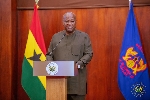The Detrimental Effects of Political Interference on Ghana's Electricity Sustainability
 Erratic electricity supply resulting from political interference has significant social and economic consequences for Ghanaian citizens and businesse
Erratic electricity supply resulting from political interference has significant social and economic consequences for Ghanaian citizens and businesse
The electricity sector plays a critical role in driving economic growth and improving the quality of life for its citizens. However, persistent political interference has undermined the sector's sustainability, resulting in erratic power supply, financial instability, and diminished investor confidence.
Disruption of Technical Planning:
Political interference often leads to short-term decision-making, neglecting long-term technical planning and infrastructure development. This lack of strategic foresight hampers the sector's ability to meet growing demand and adapt to emerging challenges such as climate change and technological advancements.
Inefficient Resource Allocation:
Political agendas sometimes prioritize short-term gains over prudent resource allocation in the electricity sector. This results in mismanagement of funds, inefficient operations, and inadequate maintenance of critical infrastructure, ultimately compromising the reliability and resilience of the electricity supply.
Erosion of Regulatory Independence:
The independence, professionalism and fairness of the regulatory bodies, PURC and EC is essential for ensuring fair competition, consumer protection, and investment stability in the electricity sector. However, political interference is undermining regulatory independence, leading to regulatory capture, favoritism, and market distortions that stifle innovation and hinder market efficiency.
Investor Uncertainty:
Political interference creates an uncertain business environment for investors in Ghana's electricity sector. Constant policy changes, arbitrary decision-making, and political patronage discourage long-term investments and deter private sector participation, limiting the sector's growth potential and hindering its ability to attract much-needed capital and expertise.
Social and Economic Impacts:
Erratic electricity supply resulting from political interference has significant social and economic consequences for Ghanaian citizens and businesses. Power outages disrupt daily life, impede productivity, and undermine the competitiveness of industries, leading to job losses, reduced income, and diminished quality of life for millions of the Ghanaian (end users).
Addressing the negative impact of political interference on the sustainability of electricity supply in Ghana requires an unbiased and concerted effort from all stakeholders. It is essential to depoliticize the sector, strengthen regulatory independence, and prioritize long-term planning and investment. By fostering a conducive environment for private investors, promoting transparency and accountability, and upholding the rule of law, Ghana can unlock the full potential of its electricity sector and ensure a reliable, affordable, and sustainable energy supply always.
Dr, Elikplim Kwabla Apetorgbor
CEO, Independent Power Generators, Ghana
Source: classfmonline.com
Trending News

It was wicked for Akufo-Addo to fund opposition parties secretly to cause NPP's defeat: Atik Mohammed
18:27
President Mahama speaks on 120-day social contract today
02:41
President Mahama to unveil code of conduct for appointees today
12:46
Kasoa: NDC member urges President Mahama to make lawlessness a national priority
04:19
WFP raises alarm over worsening hunger crisis in West and Central Africa
13:58
Michael Kpakpo Allotey takes over as Mayor of Accra
02:30
NPP-led coalition petitions Judiciary over suspension of Chief Justice
12:25
E/R: Five killed in deadly shooting at Asiyaw sand winning site
01:46
Cedi performance: Credit Bawumia for his gold reserve initiative – Kofi Bentil
13:32
Parliamentary Committee lauds Dredge Masters for Accra flood control measures
17:44



